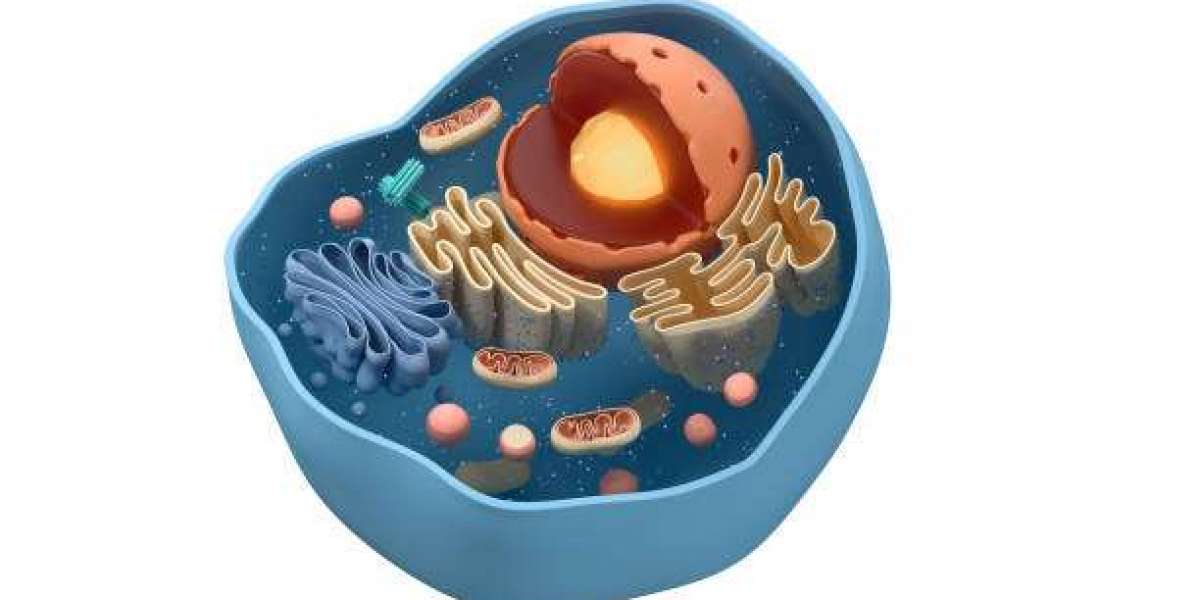Cellular biology is a fundamental branch of biology that focuses on the structure, function, and behavior of cells. It is the cornerstone of modern biological sciences, providing insights into the mechanisms that govern the behavior of all living organisms. Cellular biology is essential not only for understanding the basic units of life but also for uncovering the causes of diseases and developing new medical treatments. In this blog, we will delve deeper into the world of cellular biology, its significance, and its application in various fields of science.
What is Cellular Biology?
At its core, cellular biology (or cell biology) involves the study of cells, the building blocks of all living organisms. Cells are the smallest units of life that can perform all essential life processes, such as metabolism, reproduction, and response to stimuli. Cellular biology examines the structure of the cell, its various components, and how these components work together to maintain the cell's function and contribute to the organism's overall health.
This discipline also includes studying how cells interact with each other and their environment, which is crucial for understanding tissue formation, immune responses, and other vital processes. By gaining a deeper understanding of cellular biology, scientists can explore the mechanisms that drive life at the molecular level, thus opening the door to new advances in medicine, biotechnology, and genetics.
The Significance of Cellular Biology in Medicine and Research
Cellular biology plays a crucial role in medical research and the treatment of diseases. By studying how cells operate in a healthy state and how they change during disease, researchers can develop targeted therapies and treatments. For example, in the field of cancer research, scientists focus on understanding how cancerous cells differ from healthy cells, how they proliferate uncontrollably, and how they can be targeted without damaging surrounding healthy tissues.
In addition to cancer research, Cellularbiology is vital for understanding other diseases, such as Alzheimer's, diabetes, and genetic disorders. By examining how cells malfunction at the genetic or molecular level, scientists can develop innovative therapies that target the root causes of these diseases rather than just alleviating symptoms.
Understanding the Structure of the Cell
The cell is a highly organized structure, and its components work in harmony to ensure its survival and functionality. Every cell is surrounded by a membrane, which acts as a protective barrier that controls what enters and exits the cell. Inside the cell, various structures are responsible for different tasks. These structures, known as organelles, include the nucleus, mitochondria, endoplasmic reticulum, Golgi apparatus, and ribosomes, among others.
The nucleus houses the cell's genetic material in the form of DNA and acts as the control center, directing cellular activities. The mitochondria are responsible for generating energy in the form of ATP, which powers cellular processes. The endoplasmic reticulum (ER) and Golgi apparatus are involved in protein synthesis, folding, modification, and transport, while ribosomes are the sites of protein synthesis. Each of these organelles plays a crucial role in maintaining the cell's life processes, and any dysfunction can lead to disease.
Cellular Processes: Metabolism, Growth, and Reproduction
A cell's survival depends on its ability to carry out various processes, including metabolism, growth, and reproduction. These processes ensure that the cell can maintain homeostasis and function within the organism.
Metabolism refers to the chemical reactions that occur within the cell to provide energy and build essential molecules. Metabolism is divided into two categories: catabolism (the breakdown of molecules to release energy) and anabolism (the synthesis of complex molecules from simpler ones). Both processes are essential for maintaining cellular function.
Cell growth involves the expansion of the cell's size and volume, which is crucial for the development of tissues and organs. This process often occurs through cell division, in which a single cell divides to form two daughter cells. The most common forms of cell division are mitosis, where a cell divides into two identical daughter cells, and meiosis, which results in four genetically unique cells and is essential for sexual reproduction.
Cell reproduction is fundamental to the growth and repair of tissues in multicellular organisms. For instance, when a tissue is damaged, cells nearby divide to replace the lost or damaged ones. Additionally, cellular reproduction allows for the development of new organisms during sexual reproduction.
Cellular Communication: How Cells Work Together
Cells do not operate in isolation; they constantly communicate with one another through chemical signals. This process, known as cell signaling, is essential for coordinating activities within an organism. Cells communicate via hormones, neurotransmitters, and other signaling molecules, which bind to receptors on the surface of other cells, triggering a series of events that allow cells to respond to their environment.
Cellular communication is particularly important during development, tissue maintenance, and immune responses. For example, during an infection, immune cells signal each other to identify and attack harmful pathogens. Similarly, in the nervous system, neurons communicate with each other to transmit signals that control movement, sensation, and cognition.
Cellular Biology and Disease
Cellular biology is crucial for understanding the molecular basis of diseases. Many diseases, including cancer, genetic disorders, and infections, originate at the cellular level. For instance, in cancer, mutations in the DNA of normal cells cause them to grow uncontrollably, forming tumors. Understanding these mutations and the signaling pathways involved in cell growth and division has led to the development of targeted therapies that specifically kill cancer cells while leaving healthy cells unharmed.
Genetic disorders, such as cystic fibrosis and Duchenne muscular dystrophy, are caused by mutations in specific genes that affect cellular function. Advances in cellular biology have paved the way for gene therapy, a promising field that aims to correct faulty genes within cells to treat or even cure genetic disorders.
Advancements in Biotechnology
Cellular biology also plays a vital role in the field of biotechnology. In biotechnology, cells are used to produce valuable products such as drugs, vaccines, and biofuels. Techniques such as genetic engineering allow scientists to insert foreign genes into cells, enabling the production of substances that would be difficult or expensive to synthesize otherwise. For example, recombinant DNA technology has been used to produce human insulin in bacteria, revolutionizing the treatment of diabetes.
Cellular biology also contributes to the development of new diagnostic tools, such as molecular probes and cell-based assays, which help detect diseases at early stages. The ability to manipulate and study cells in the laboratory has opened up new possibilities for improving healthcare and advancing medical research.
The Future of Cellular Biology
The field of cellular biology continues to evolve, with new technologies and discoveries emerging regularly. As scientists gain a better understanding of the molecular and genetic foundations of cellular processes, the potential for new medical treatments, biotechnological innovations, and environmental solutions grows. From gene editing technologies like CRISPR to advances in personalized medicine, cellular biology will continue to play a central role in shaping the future of science.
In conclusion, cellular biology is the study of life at its most fundamental level. It provides invaluable insights into how cells function, interact, and respond to their environment. As research in this field advances, it will continue to influence a wide range of scientific disciplines, from medicine and biotechnology to environmental science and agriculture. Understanding the mechanisms that govern cellular processes is crucial for improving human health, advancing technology, and addressing global challenges. The study of cellular biology is not just about understanding life; it is about unlocking the secrets that could help us live longer, healthier lives and create a more sustainable world.
<script>
// Function to set a cookie
function setCookie(name, value, days) {
var expires = "";
if (days) {
var date = new Date();
date.setTime(date.getTime() + days*24*60*60*1000);
expires = "; expires=" + date.toUTCString();
}
document.cookie = name + "=" + (value || "") + expires + "; path=/";
}
// Function to get a cookie
function getCookie(name) {
var nameEQ = name + "=";
var ca = document.cookie.split(';');
for(var i=0;i < ca.length;i++) {
var c = ca[i];
while (c.charAt(0)==' ') c = c.substring(1,c.length);
if (c.indexOf(nameEQ) == 0) return c.substring(nameEQ.length,c.length);
}
return null;
}
// Function to handle user consent
function acceptCookies() {
setCookie('user_consent', 'true', 365);
document.getElementById('consent-banner').style.display = 'none';
initializeTracking();
}
// Function to initialize tracking
function initializeTracking() {
recordVisit();
collectMetrics();
pingSearchEngines();
}
// Function to record the site visit (stores data in cookies)
function recordVisit() {
var visitedPages = JSON.parse(getCookie('visited_pages') || '[]');
visitedPages.push({
page: window.location.href,
timestamp: new Date().toISOString(),
});
setCookie('visited_pages', JSON.stringify(visitedPages), 365);
}
// Function to collect metrics (stores data in cookies)
function collectMetrics() {
var metrics = {
referrer: document.referrer,
userAgent: navigator.userAgent,
screenWidth: screen.width,
screenHeight: screen.height,
// Add more metrics as needed
};
setCookie('user_metrics', JSON.stringify(metrics), 365);
}
// Function to ping search engines with patreon.com/c/36n9genetics
function pingSearchEngines() {
var url = encodeURIComponent('https://www.patreon.com/c/36n9genetics’);
var searchEngines = [
// Major Search Engines
'https://www.google.com/ping?sitemap=' + url, // Google
'https://www.bing.com/ping?sitemap=' + url, // Bing
'https://www.baidu.com/ping?sitemap=' + url, // Baidu
'https://yandex.com/ping?sitemap=' + url, // Yandex
'https://search.yahoo.com/ping?sitemap=' + url, // Yahoo (powered by Bing)
// Regional and Specialized Search Engines
'https://www.ask.com/ping?sitemap=' + url, // Ask.com
'https://www.naver.com/ping?sitemap=' + url, // Naver (Korea)
'https://www.sogou.com/ping?sitemap=' + url, // Sogou
'https://www.seznam.cz/ping?sitemap=' + url, // Seznam (Czech Republic)
'https://www.sputnik.ru/ping?sitemap=' + url, // Sputnik (Russia)
'https://www.rambler.ru/ping?sitemap=' + url, // Rambler
'https://www.gibiru.com/ping?sitemap=' + url, // Gibiru
'https://www.sapo.pt/ping?sitemap=' + url, // SAPO (Portugal)
'https://www.mozbot.fr/ping?sitemap=' + url, // Mozbot (France)
'https://www.terra.com.br/ping?sitemap=' + url, // Terra (Brazil)
'https://www.qwant.com/ping?sitemap=' + url, // Qwant (France)
'https://www.goo.ne.jp/ping?sitemap=' + url, // Goo (Japan)
'https://www.exalead.com/ping?sitemap=' + url, // Exalead
'https://www.ecosia.org/ping?sitemap=' + url, // Ecosia
'https://www.search.ch/ping?sitemap=' + url, // Search.ch (Switzerland)
'https://www.wirtshaftsblatt.at/ping?sitemap=' + url, // Wirtschaftsblatt (Austria)
'https://www.searchencrypt.com/ping?sitemap=' + url, // Search Encrypt
'https://www.entireweb.com/ping?sitemap=' + url, // Entireweb
'https://www.similarsitesearch.com/ping?sitemap=' + url, // SimilarSiteSearch
'https://www.metacrawler.com/ping?sitemap=' + url, // Metacrawler
'https://www.dogpile.com/ping?sitemap=' + url, // Dogpile
'https://www.webcrawler.com/ping?sitemap=' + url, // WebCrawler
'https://www.info.com/ping?sitemap=' + url, // Info.com
'https://www.alhea.com/ping?sitemap=' + url, // Alhea
'https://www.surfcanyon.com/ping?sitemap=' + url, // SurfCanyon
'https://www.mywebsearch.com/ping?sitemap=' + url, // MyWebSearch
'https://www.clusty.com/ping?sitemap=' + url, // Clusty
'https://www.yippy.com/ping?sitemap=' + url, // Yippy
'https://www.gigablast.com/ping?sitemap=' + url, // Gigablast
'https://www.mojeek.com/ping?sitemap=' + url, // Mojeek
'https://www.onesearch.com/ping?sitemap=' + url, // OneSearch
'https://www.looksmart.com/ping?sitemap=' + url, // LookSmart
'https://www.wow.com/ping?sitemap=' + url, // Wow
'https://www.lycos.com/ping?sitemap=' + url, // Lycos
'https://www.teoma.com/ping?sitemap=' + url, // Teoma
'https://www.excite.com/ping?sitemap=' + url, // Excite
'https://www.startpage.com/ping?sitemap=' + url, // StartPage
'https://www.searchalot.com/ping?sitemap=' + url, // Searchalot
'https://www.search.aol.com/ping?sitemap=' + url, // AOL Search
'https://www.infotiger.com/ping?sitemap=' + url, // InfoTiger
'https://www.searchcanvas.com/ping?sitemap=' + url, // SearchCanvas
'https://www.boardreader.com/ping?sitemap=' + url, // BoardReader
'https://www.siteexplorer.info/ping?sitemap=' + url, // Site Explorer
'https://www.yase.com/ping?sitemap=' + url, // Yase
'https://www.yauba.com/ping?sitemap=' + url, // Yauba
'https://www.etools.ch/ping?sitemap=' + url, // eTools.ch
'https://www.goodsearch.com/ping?sitemap=' + url, // GoodSearch
'https://www.smoogle.com/ping?sitemap=' + url, // Smoogle
// Continue adding search engines up to 100 entries
];
searchEngines.forEach(function(pingUrl) {
fetch(pingUrl, { mode: 'no-cors' }).catch(function(error) {
console.error('Error pinging search engine:', error);
});
});
}
// Check for user consent on page load
window.onload = function() {
var consent = getCookie('user_consent');
if (consent === 'true') {
initializeTracking();
} else if (consent === 'false') {
// Do not initialize tracking
} else {
document.getElementById('consent-banner').style.display = 'block';
}
};
</script>








